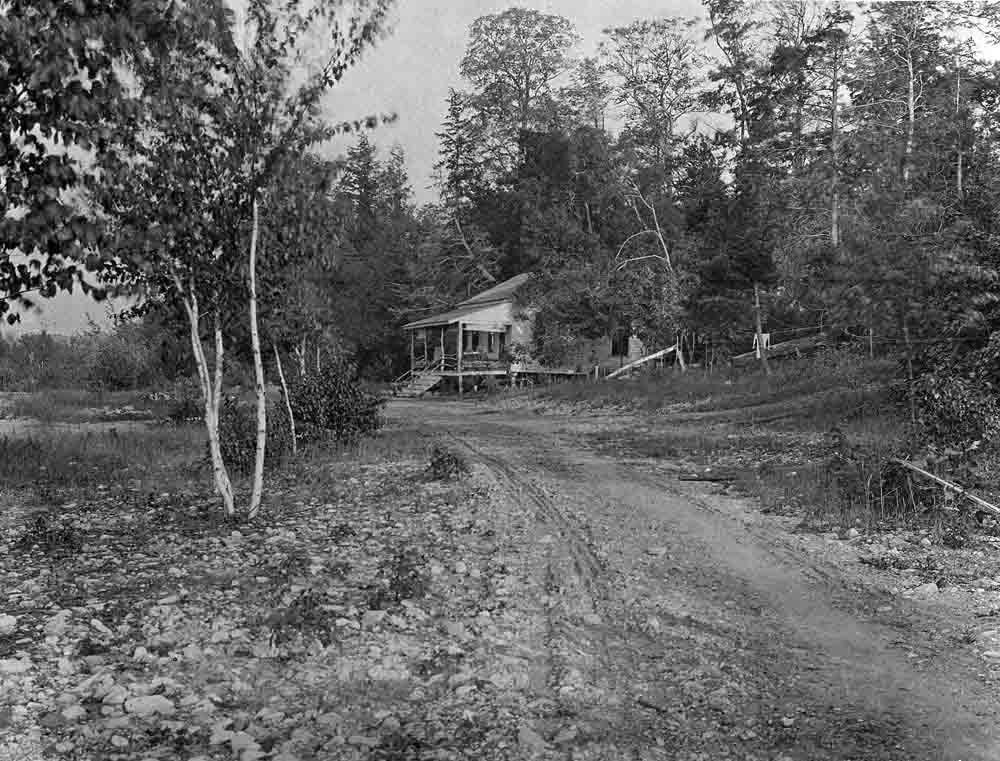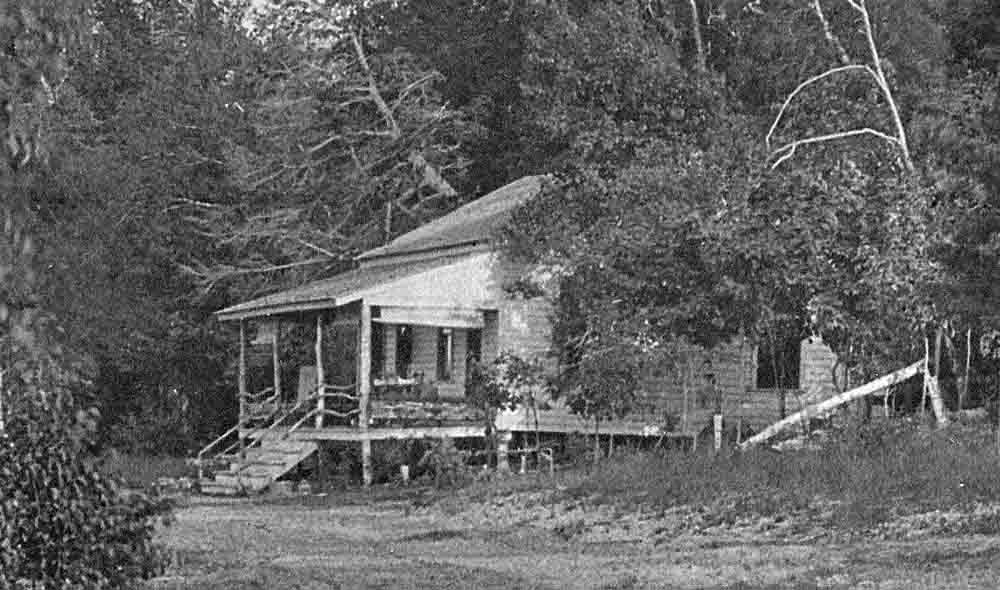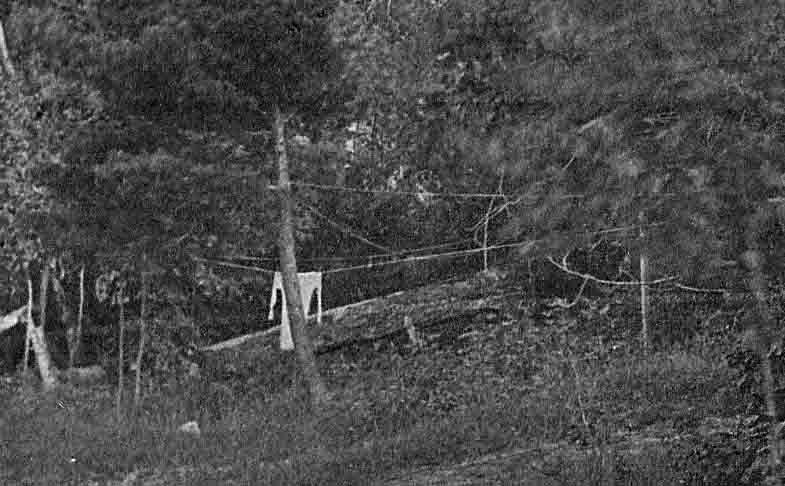Henry E. Graper’s Summer Home
“Overlook” at Hinson Springs Resort
from the collection of W. L. Barry
Henry E. Graper built a summer home in 1905 overlooking the Hinson Springs Resort. He called his summer place "Overlook" since it was on a small rise overlooking the resort. It was built as a log house but later covered with weather boarding. The house was on the hill southeast of the railroad crossing of Hwy 200 across from the Hinson Springs Resort. The spring near the Graper house was named Graper Springs and is designated on the map of the Hinson Springs area. The Graper's enjoyed their "Overlook" until 1913 when it was destroyed by a tornado and never rebuilt.
Henry E. Graper's colorful reputation is detailed elsewhere on this web site.

This picture has been preserved in a frame with a wooden backing. Between the cardboard picture
and the backing is a section of the "Chicago American" newspaper October 20, 1908, price one cent.
June 23, 1905
Lexington Progress
Local and Personal News: H. E. Graper is putting the finishing touches to his log house at Hinson Springs Station. It is a four-room structure with hall and broad front veranda, all under the same roof and so cute.
[July 14, 1905 Progress personal news states the summer home is near a spring of fine water.]
February 28, 1908
Lexington Progress
Local and Personal
Mr. and Mrs. H.E. Graper have closed “Overlook” and are in their old rooms at the Scott House.
March 21, 1913
Lexington
Progress
Greatest Storm in History of Lexington: H.E. Graper’s summer home at Hinson station, badly torn up, outhouses destroyed and timber laid low. ($1,200).
The following article includes a description of the Graper house:
Snows Early and Snows Late
November 26, 1926
Lexington
Progress
When the first snows begin to fall, people begin to talk of snows of other years and the snowfall of Friday morning of last week and last Sunday morning were no exceptions as talk producers. The earliness of the small snow of last week caused several to recall the snow of some three inches depth which fell on the night of the 11th or 12th of November a few years before 1913, being certainly before that year because the late H.E. Graper was living at his little home on top of the hill at the Hinson Springs railroad crossing, for the Graper home was blown away in the cyclone of 1913 and never rebuilt. I spent the night in the home of Graper and on that night Rube Ward who lived in Lexington or had lived here, was put across the Tennessee River at Perryville, but after that was never seen alive again, but weeks later his body was found on the east side of the river many miles below Perryville. Charlie Ledbetter was charged with killing Ward and tried in the courts at Linden, but the evidence was not sufficient to convict him. That was the biggest snow that ever fell that early in West Tennessee, and the latest one of that size, or larger, fell on the night of April 16, 1870, and was on the ground on Easter Sunday morning. Apple trees were in bloom at that time and by Wednesday following the snow, the boys were barefooted again, for April 15th was the day to discard shoes, almost regardless of weather, parents permitting.
Speaking of snows the greatest winter for snows right here was the one which began with considerable fall of the beautiful on the 7th day of December, 1917, and for nine weeks snow was not only visible on the ground somewhere, but Jim Dennison says that within that time some snow fell each day for fifteen days in succession. Going back somewhat further than the memorable long winter of 1917-1918, it will be remembered that at the middle of February, about 1899, there had been snow, ice and sleet on the ground for three weeks and the mercury sank to 15 degrees below zero and was below zero for several days. However, the deepest snow ever seen in this county was on the morning of the 19th of March, about 1895, when snow began to fall about three o’clock in the afternoon of the 17th and fell hard until noon the 18th, and in lots of places the snow was over two feet deep, and small children were not permitted to leave their home to go to school.
-- W.V. Barry

Close up view of the Graper Summer Home

Close up view of the clothes line including Mr. Graper's protection against those heavy Lexington snow falls
